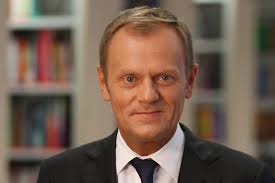European Union Convenes to Discuss the Paris Agreement
The Ministers of the Environment of all 28 European Union countries met in Brussels on September 30 to discuss the ratification of the Paris Agreement. This agreement aims to keep the global temperature increase below 2℃ (3.6℉), decrease greenhouse gas emissions, and provide countries with the means to achieve this goal by 2030. While six countries - Germany, Austria, France, Hungary, Malta, and Slovakia - have already officially ratified the document, the rest must now do so by October 7. In an unprecedented procedure, the United Nations Framework Convention on Climate Change (UNFCCC) did not wait for the approval from the 28 EU countries to start moving forward with the agreement. The French Minister of the Environment defended this action, stating, “There is a consensus about the objectives of the Paris Agreement; there is not one disagreement even in the background.” Only after this ratification can Europe participate in the negotiations of COP22, the twenty-second Conference of the Parties.
China and the United States, two major CO2 emitters, recently ratified the Paris Agreement. This prompted Europe to take action, resulting in their accelerated ratification of the agreement.

However, certain European countries have reservations regarding this acceleration. Poland demanded guarantees on how countries will share the effort of reducing emissions and worries about this setting a precedent for quickly passing international agreements. On the other hand, British Prime Minister Theresa May, contrasting with earlier uncertainty, recognized the need for this agreement. Amidst these doubts, Donald Tusk, president of the European Council, stated, “What some thought impossible is now a reality.”
This enthusiasm is lost on those who view the goals of the Paris Agreement as unrealistic. Former president of the Intergovernmental Panel on Climate Change (IPCC) Robert Watson demonstrates that the regulations set are insufficient; by the year 2030, the temperature will increase well over 2℃ with catastrophic effects on the environment.
The Paris Agreement aims to unite Europe in the fight against pollution, but its shortcomings only result in the hesitancy of European countries to sign. Even with the acknowledgement of its shortcomings in an amendment, increasing the limit of greenhouse gas emitted from 40 gigatons to 55, it remains to be seen how effective the Paris Agreement will truly be.
